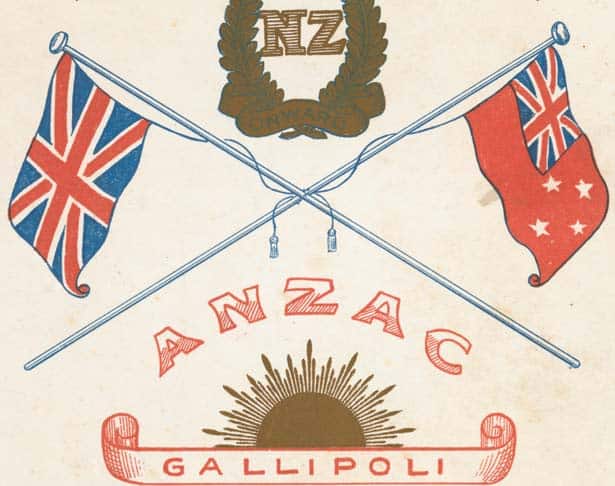Embracing Heritage: ANZAC Day for Families in New Zealand
Hey wonderful parents! Are you looking to introduce your children to the historical significance and modern-day observances of ANZAC Day in New Zealand? Well, you’re in the perfect place! ANZAC Day, marked on April 25th every year, is a significant occasion in New Zealand that honors the servicemen and servicewomen who have participated in various conflicts and peacekeeping operations around the globe. It is a day of remembrance, reflection, and national pride, providing a beautiful chance for families to not just learn about the past but also to engage in enriching community events.
Understanding ANZAC Day and Its Importance
Before we dive into how you can make ANZAC Day memorable for your family, let’s understand what we’re commemorating. ANZAC stands for the Australian and New Zealand Army Corps and this day specifically remembers the brave soldiers who landed at Gallipoli, Turkey, during World War I. This moment in our history signifies more than just a military campaign; it’s about courage, camaraderie, and the indomitable Kiwi spirit that connects all of us here in New Zealand.
By teaching our children about ANZAC Day, we’re not only informing them of an essential chapter in our nation’s history, but we’re also instilling values of respect, gratitude, and a deep appreciation for the peace and freedoms we enjoy today.
ANZAC Day Activities for Families
Now, how can we turn this day into a memorable experience for our little ones and the entire family? Let’s explore some activities and traditions that have been passed down through generations and look at new ways to observe this treasured day:
- Attend a Dawn Service: Dawn services are held throughout the country and are a profound way for your family to experience the solemnity of ANZAC Day. The moment the sun rises while everyone shares a moment of silence is deeply moving and can be a powerful introduction for your kids to the essence of the day.
- Visit War Memorials or Museums: Take the family to visit one of the many war memorials or military museums scattered across New Zealand. It’s an excellent opportunity for interactive learning, and most places have guides or exhibits that are child-friendly.
- Craft Red Poppies: The red poppy has become a symbol of remembrance and is worn on ANZAC Day. Crafting poppies can be a creative and engaging way for children to participate. Plus, this can lead to a discussion on why the poppy is significant and how it came to be associated with this day.
Preparing for ANZAC Day
Preparation can make ANZAC Day more meaningful for your family. Here are some ideas to get ready for this special day:
- Read Books or Stories Together: There are many children’s books and stories that can introduce the concepts of military service and sacrifice at an age-appropriate level. Storytime can be a wonderful bonding moment and an educational one as well.
- Bake ANZAC Biscuits: Baking ANZAC biscuits is a delicious tradition. These sweet treats have a historical connection, as they were originally made to send to the ANZACs abroad. Baking can be plenty of fun and also a practical history lesson for your kids!
- Watch Documentary Films: A number of compelling documentaries and short films have been made about ANZAC Day and the Gallipoli campaign. Watching these with older children can help them understand the gravitas of the day, and stimulate thoughtful conversations within the family.
Including your children in the remembrance of ANZAC Day is a beautiful way to honor our history while teaching them valuable lessons about sacrifice, courage, and unity. Stay tuned as we continue to explore deeper into the heart of ANZAC Day observances, and how your family can contribute to keeping this tradition alive and relevant for future generations.
Whether you’re planning to plan your first ANZAC Day with your children or seeking to deepen your family’s yearly traditions, this guide will walk you through how to make the day a thoughtful, educational, and touching experience for all.

Five Essential Things Parents Should Know When Preparing for ANZAC Day
Preparing for ANZAC Day isn’t just about marking the date on your calendar. There’s a lot to consider to truly honor the day. Here’s what every parent should keep in mind:
- Understanding the Historical Context: Ensure you have a firm grasp of the historical significance of the ANZACs and the Gallipoli campaign. This understanding will help you communicate the day’s importance to your children with sensitivity and respect.
- Exploring Local Events: Research the ANZAC Day services and events happening in your local area. Every community in New Zealand has its own way of commemorating this day, so find one that is suitable for your family’s participation.
- Preparing for the Dawn Service: If you’re planning to attend a dawn service, remember that these can start as early as 5:30 AM, so prepare the night before. Dress warmly, pack snacks, and perhaps bring a cushion for younger children as well as a torch.
- Educating Through Activities: Look for activities that are not only fun but also serve as educational tools. Baking ANZAC biscuits, making crafts, and attending museum exhibitions can all serve as engaging ways for children to learn about ANZAC Day.
- Discussing Values That Matter: Use ANZAC Day as an opportunity to talk about values like bravery, sacrifice, and comradeship. Encourage your children to contemplate what these values mean and how they translate into everyday life.
Continuing the Conversation Beyond ANZAC Day
ANZAC Day offers a platform to discuss broader topics with your children about history, geography, and even current events. Here’s how to keep the conversation going:
- Community Engagement: Get involved with your local Returned and Services’ Association (RSA). They often have year-round initiatives and could offer opportunities for volunteering as a family.
- Cultural Exchange: Since ANZAC Day is also commemorated in Australia, consider setting up a cultural exchange or pen pal arrangement for your children with kids across the Tasman. It could foster a sense of trans-Tasman kinship and shared history.
- Historical Trips: Plan family trips to significant historical sites throughout the year, not just museums but also battlefields and memorial sites, to understand New Zealand’s military heritage.
- Arts and Media: Beyond documentaries, introduce your children to films, music, and art that explore the themes of ANZAC Day. Different media can offer unique perspectives and understanding.
- Annual Reflection: Make a tradition of discussing what ANZAC Day means to each family member and note how perceptions and understandings grow or change every year.
ANZAC Day is more than a national holiday — it’s an educational opportunity and a day of homage to our forebears. By keeping the spirit of the ANZACs alive through various family activities and discussions, we not only pass on an important legacy but also help our children build a connection with New Zealand’s past that they can carry with pride into the future.
As parents, taking the time to prepare for ANZAC Day can transform it from a simple day off school to a day rich with history, learning, and family bonding. It’s these moments that help shape our children’s understanding of their nation’s identity and their own place within it.
Let’s make this ANZAC Day one filled with poignant reflections, educational ventures, and heartfelt family moments. Lest we forget.
See more great Things to Do with Kids in New Zealand here. For more information see here
Disclaimer
The articles available via our website provide general information only and we strongly urge readers to exercise caution and conduct their own thorough research and fact-checking. The information presented should not be taken as absolute truth, and, to the maximum extent permitted by law, we will not be held liable for any inaccuracies or errors in the content. It is essential for individuals to independently verify and validate the information before making any decisions or taking any actions based on the articles.




